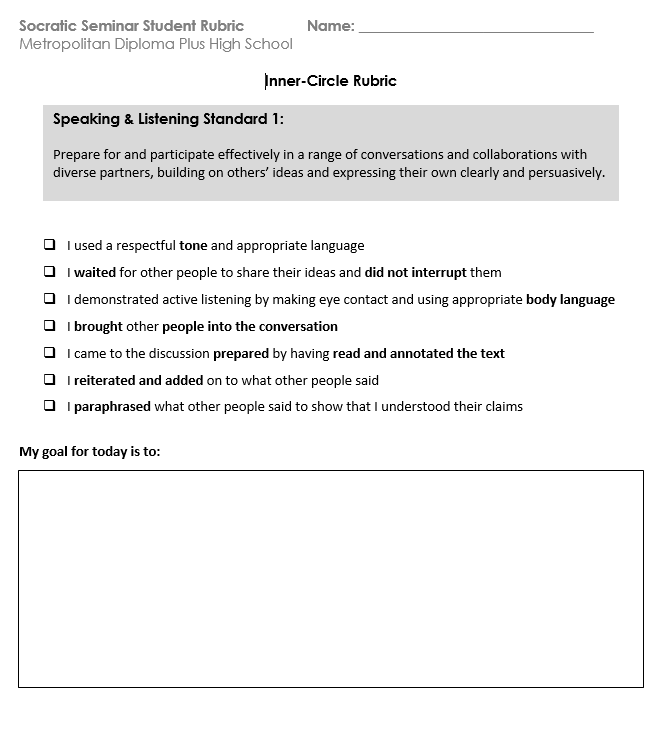What We Do: Design Projects >> Feedback & Assessment
Using Text-Based Discussions to Improve Writing at Metropolitan Diploma Plus High School
The risks associated with student-led discussions often induce anxiety in educators, who may worry about classroom management or covering required content. However, when students engage in structured conversations around core texts with their classmates, they think more actively and are better able to develop their own arguments about the content. Metropolitan Diploma Plus High School (MDPHS), a transfer high school located in Brownsville, Brooklyn, is pursuing these high rewards. With support from Eskolta, teachers from all departments at MDPHS are building on their work from the 2013–14 school year to focus on improving students’ argumentative writing skills by embedding discussion strategies in all classes.
Throughout the 2013–14 school year, a group of teachers from each department at MDPHS met regularly with Eskolta facilitator Emily Kleinman and reDesign coach Maria Akinyele to design and implement discussion strategies, such as “Speed Share,” or “Inner and Outer Circles,” as well as rubrics and assessments aligned to key Common Core speaking and listening and writing skills. To build on this work during the 2014–15 school year, the group refined their focus to helping students develop metacognitive skills and engage in Socratic seminars in all classes. With the goal of refining and embedding these practices across the school, teachers used student work and videotaped seminars to normalize expectations and to reflect on student progress.
The focus on discussion techniques has noticeably improved both teacher learning and student skills at MDPHS. For example, principal Meri Yallowitz noted improvements in student writing and teacher collaboration. Teachers work together to create scaffolds aimed at increasing engagement and revise and share writing and assessment tools. Regarding the discussion strategies and their impact on students’ higher-order thinking skills, ELA teacher Lucia Brockway says, “They help students organize their thoughts in writing. If they can talk through their position and claim—hear it out loud—it makes more sense to them. Some students are strong speakers, but not such strong writers, and allowing them to work with the ideas together pushes the connection between good speaking and good writing.” Across all departments, teachers are seeing a spark in student engagement during Socratic seminars. Math teacher Alicia Rivera says, “Students [who usually don’t participate] said they really liked the discussions because it wasn’t math. But it is math, just framed in a different way.”

